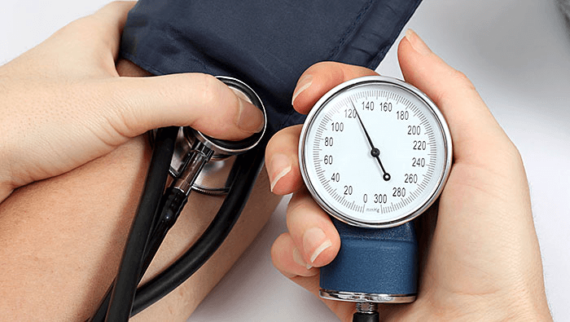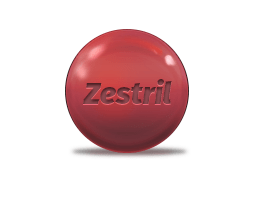 What is High Blood Pressure / Hypertension?
What is High Blood Pressure / Hypertension?
High blood pressure (hypertension) is a medical condition involving high pressure in the arteries. Arteries are blood vessels that transport blood from the heart to different parts of the body. It is problematic because it causes the heart to work harder to pump blood throughout the body.
This can result in hardening of arteries, or atherosclerosis as the condition is called. Other complications include kidney disease, eye damage, heart failure, and stroke (brain damage from oxygen deprivation). Blood pressure readings are provided as two numbers:
- The top number, measuring systolic pressure, represents the pressure in the arteries when the heart contracts.
- The bottom number, measuring diastolic pressure, is the blood pressure in the arteries when the heart relaxes.
According to the latest guidelines published by the American College of Cardiology in 2017, it can be measured as follows:
- Normal: When blood pressure is 120/80
- Elevated: When blood pressure is between 120/80 and 129/80
- High blood pressure stage 1: When blood pressure is 130/80 or above
- High blood pressure stage 2: When blood pressure is 140/90 or above
- Hypertension crisis: Seek immediate medical help if blood pressure is 180/120 or above

Causes of High Blood Pressure
Although it is still not clear what causes this issue, the following factors may play a role in it:
- Age: There is a greater risk of having this disease in older people. It is more common in men until they are 64 years of age, while women have an increased risk of increasingly high blood pressure after they are 65 years of age.
- Family history: You are at a greater risk of developing if it runs in your family.
- Smoking: Chewing tobacco and cigarette smoking immediately raises your blood pressure for a period of time. It can also cause damage to the lining of the artery walls, causing the arteries to narrow and increasing the danger of heart disease.
- Race: This is particularly prevalent in people of African origin, and often at a very young age.
- Too much salt and less potassium in your diet: Too much sodium in your food can cause fluid retention in the body, thus increasing the chances of this disease. Similarly, potassium is very helpful in balancing the sodium amounts in your cells. If you do not ingest enough potassium, it may result in increased amounts of sodium in your blood.
- Being obese or overweight: As your weight increases, more blood is required to supply nutrients and oxygen to your tissues. This increase in the volume of blood circulated puts additional pressure on the artery walls.
- Stress: High levels of stress cause a temporary increase pressure in blood.
- Insufficient physical activity: Inactive people have higher heart rates. In such cases, the heart must work harder with every contraction, and this puts more force on your arteries. Lack of physical activity is also another primary cause of obesity.
- Drinking alcohol in excess: Drinking too much alcohol can cause damage to the heart. For this and many other reasons, it is better to drink in moderation.
- Certain chronic conditions: Chronic conditions like diabetes, sleep apnea, and kidney disease could also cause high blood pressure.
Pregnant women are also at risk of developing high blood pressure. Although this medical condition is more prevalent in adults, children are also at risk due to problems with heart or kidneys. Unhealthy diet and lack of exercise in children is also a contributing factor to high blood pressure.
There are two different types of high blood pressure hypertension:
Primary (essential) hypertension
This kind of high blood pressure develops gradually over time, and without any identifiable cause.
Secondary Hypertension
This type is usually a result of an underlying condition. Secondary hypertension tends to appear suddenly and causes this disease than primary hypertension. Various medications and conditions can lead to secondary hypertension, including:
- Kidney problems
- Thyroid problems
- Obstructive sleep apnea
- Adrenal gland tumors
- Certain drugs such as cold remedies, over-the-counter pain relievers, birth control pills, decongestants, and some prescription drugs.
High Blood Pressure Symptoms
Hypertension, also known as the silent killer, does not come with any high blood pressure symptoms. The following symptoms MAY be seen in sufferers:
- Nausea
- Blurred vision
- Dizziness
- Headache
- Shortness of breath
- Feeling of pulsations in the head or neck
Treatment
A healthy lifestyle is a critical step in treating and preventing hypertension. These lifestyle changes can help lower blood pressure:
- Quitting smoking
- Losing weight if you are overweight
- Following a healthy diet, for example, the DASH diet eating less saturated and total fat and more vegetables, fruits, and low-fat dairy products
- Taking less sodium in your food. Individuals facing this issue should have a daily intake of sodium that is less than 1,500mg, while healthy adults should limit their daily sodium intake to 2,300mg, which is approximately one teaspoon of salt
- Exercising regularly for at least 30 minutes
- Limiting alcohol to one drink a day for women and two drinks for men
- Avoiding stress
These measures not only lower it, but also enhance the benefits of any medications being taken for this reason. For more information regarding nutrition and healthy eating visit here.
Drugs that help treat High Blood Pressure
Certain drugs help in the treatment of high blood pressure. These include:
- Diuretics
- Angiotensin-converting enzyme (ACE) inhibitors
- Calcium channel blockers
- Renin inhibitors
- Angiotensin II receptor blockers (ARBs)
- Alpha-blockers
- Beta-blockers
- Alpha-agonists
- Combination medications
Complications
It can lead to the following complications:
- Heart attack or stroke: It is a significant cause of stroke, heart attack, and other complications as it causes thickening and hardening of arteries.
- Eye problems: It can cause narrowed, torn, or thickened blood vessels in the eyes. This condition can lead to full or partial loss of vision.
- Aneurysm: Blood vessels cam weaken and bulge due to increased blood pressure, forming an aneurysm which could be life-threatening if it bursts.
- Heart failure: This issue forces the heart to work harder, resulting in a thickening of the walls of the heart. The heart then struggles to pump sufficient blood to meet the body’s requirements, and this prolonged strain often results in some degree of heart failure.
- Kidney failure: It may also prevent the kidneys from functioning normally.
- Dementia and trouble with understanding: Blocked or narrow arteries can hinder the flow of blood to the brain, thus causing dementia. High blood pressure can also affect your ability to remember, learn, and think.
References:
- Mayo Clinic – Nutrition and healthy eating
- Alzheimer’s association – What Is Dementia?
IMPORTANT NOTE: The above information is intended to increase awareness of health information and does not suggest treatment or diagnosis. This information is not a substitute for individual medical attention and should not be construed to indicate that use of the drug is safe, appropriate, or effective for you. See your health care professional for medical advice and treatment.
 What is High Blood Pressure / Hypertension?
What is High Blood Pressure / Hypertension?
